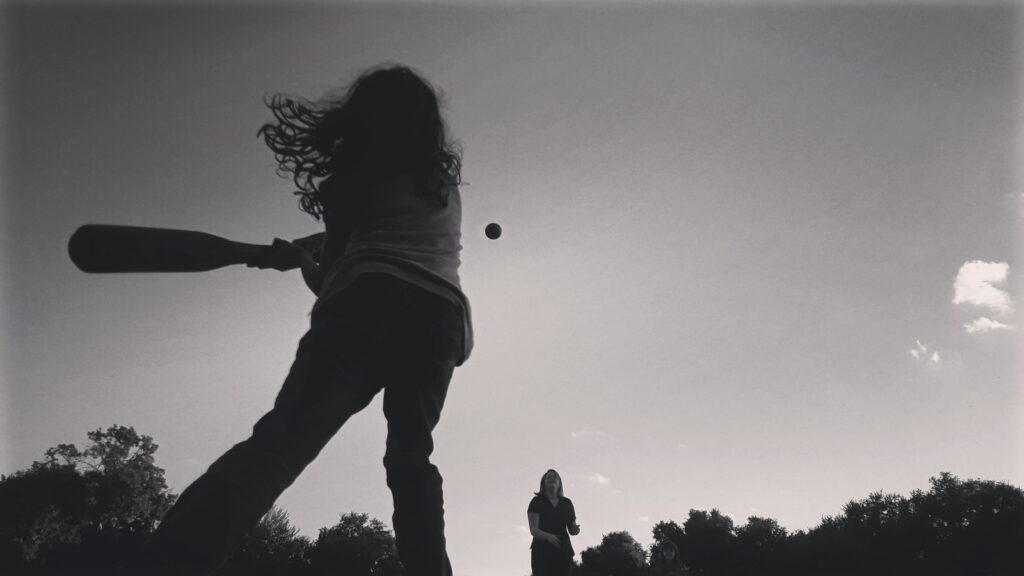Our thinning civil society has the effect of removing from so many kids the natural mentor relationships that many of us were blessed with growing up. Big Brothers Big Sisters steps in to play this role.
I can close my eyes and almost instantly recall the faces of mentors who helped shaped my character throughout my upbringing—my middle school basketball coach, high school algebra teacher, and youth pastor. Each one of these people instilled in me confidence during crucial developmental years. In fact, it’s shocking to look back and think just how much of my character was shaped by these three people. It’s a testament to the fact that young people’s lives can be positively influenced through a meaningful relationship with a mentor. One encouraging word or a listening ear can unlock the latent potential in a child.
I had the good fortune of these three mentors thanks to the institutions I was lucky to belong to when I was growing up. School, church, and sports provided for me the fabric of civil society where I found my place in my community and the mentorship to help me grow up well.
Knowing firsthand the importance of good mentors is what inspired me to volunteer with Big Brothers Big Sisters, a national nonprofit that sets up one-to-one mentoring relationships between adult volunteers and children. A completely free program, Big Brothers Big Sisters allows parents to sign their children up to be connected to a vetted adult mentor.
The beauty of the program lies in its simplicity. It connects one child with one mentor with a simple premise: meet a few times each month for one calendar year. There’s no expectation to untangle a child’s trauma, or to be a wise sage helping them navigate life’s most complex problems. Big Brothers Big Sisters just asks both parties to make an earnest effort in developing and cultivating a meaningful friendship over the course of a year (the relationship can, and hopefully will, continue for years to come after the initial one-year period).
The matchmaking process is quite extensive. Big Brothers Big Sisters strives to create matches that are good fits for “Bigs” and “Littles,” which takes time. It’s not easy to imitate in these matches the relationship that would arise organically through the institutions of civil society. But in striving to fulfill a gap in a weak civil society, the long matching process comes close to realizing the same effect. Ultimately, the long-term value of these screenings is immense and ensures both parties are comfortable with the match. I signed up for Big Brothers Big Sisters in 2020, and it took a few months before I matched with a sweet elementary school boy. Let’s call him “Daniel.”
Twice a month, I meet with Daniel to do a variety of fun activities. Daniel loves trying new sports (we recently discovered he’s naturally talented at tennis!), playing Uno, and painting. Daniel also comes from a broken home and struggles with self-esteem. Daniel’s mom signed him up for Big Brothers Big Sisters so that he could develop a relationship with a male mentor who can be both an encourager and friend.
Friend is the keyword. I’m not Daniel’s teacher, therapist, or parent. I’m simply his friend. And like friends do, we have all sorts of fun together. We like to go on weekend nature walks through the Harvard Arboretum. We visit the zoo, go bowling, and throw the frisbee. When he wants to talk, I listen. When he wants to goof, we laugh and play jokes on each other. As a “Big,” there’s no pressure for me to be anything other than a friend. That friendship alone is an investment in Daniel’s future.
In spending time with Daniel, I’m hoping to create one of those relationships that are formative for young men and women—those threads that weave together the fabric of civil society and create the space for kids to be known and to grow up knowing their place in a community.
I hope my mentorship and friendship with Daniel has a lasting impact on improving his confidence. However, I can say with assurance that my experience in the program has had an equally valuable impact on my own life. I’ve learned from Daniel in ways I didn’t think possible. It’s a joy to be around a child who first discovers a new activity, or who lights up with wonder at the thought of going for ice cream.
My relationship with Daniel is just one of thousands of Big Brother Big Sister matches across the country. Unlocking the potential of a child’s future is not complicated. You don’t need to be a licensed therapist, a trained educator, or even a parent to positively influence the next generation. All it takes is earnestness and willingness to be a friend.




Mr. Smith, as a previous program and quality assurance director within a Big Brothers Big Sisters organization, I am thrilled to read about your positive experience as a mentor and of your understanding of why the process of matching a child and adult mentor can take a long time. You have a great grasp on the mentoring relationship and what your role is as a Big Brother! Thank you for the time you are giving to help nurture and “grow” Daniel towards his potential! He is fortunate to have you!